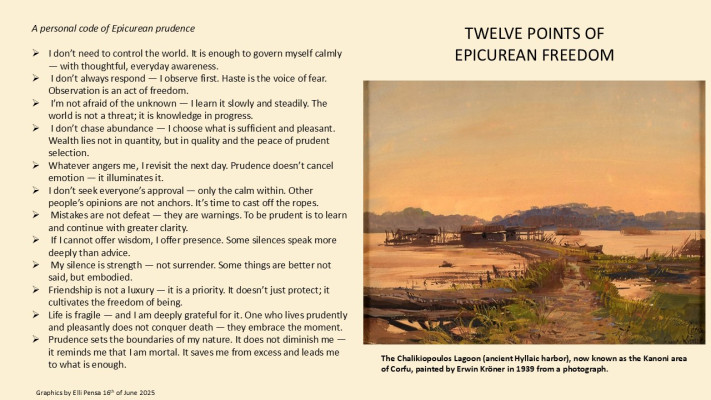Rolf I am pretty sure this is the one where Don appeared with us:
Thread
Episode 256 - Epicurean Gods: Real, Or Ideal Thought Constructs?
Welcome to Episode 256 of Lucretius Today. This is a podcast dedicated to the poet Lucretius, who wrote "On The Nature of Things," the most complete presentation of Epicurean philosophy left to us from the ancient world.
Each week we walk you through the Epicurean texts, and we discuss how Epicurean philosophy can apply to you today. If you find the Epicurean worldview attractive, we invite you to join us in the study of Epicurus at EpicureanFriends.com, where we discuss this and all of our…
Each week we walk you through the Epicurean texts, and we discuss how Epicurean philosophy can apply to you today. If you find the Epicurean worldview attractive, we invite you to join us in the study of Epicurus at EpicureanFriends.com, where we discuss this and all of our…
Cassius
there's also the full series of episodes on Cicero's "On The Nature of The Gods" that begins with episode 226:
Thread
Episode 226 - Cicero's On The Nature of The Gods - Epicurean Section 01 - Introduction
Welcome to Episode 226 of Lucretius Today. This is a podcast dedicated to the poet Lucretius, who wrote "On The Nature of Things," the most complete presentation of Epicurean philosophy left to us from the ancient world. Each week we walk you through the Epicurean texts, and we discuss how Epicurean philosophy can apply to you today. If you find the Epicurean worldview attractive, we invite you to join us in the study of Epicurus at EpicureanFriends.com, where you will find a discussion thread…
Cassius


